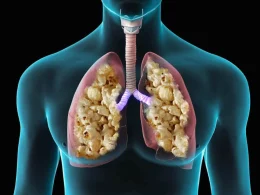What Does a Speech Pathologist Do?
A speech pathologist helps individuals who struggle with communication and swallowing disorders. These professionals are trained to assess, diagnose, and treat a wide range of speech, language, voice, and fluency issues. Their work goes beyond just speech; they support people with cognitive-communication disorders and even feeding and swallowing difficulties.
From helping children pronounce words correctly to assisting stroke patients in regaining speech, a speech pathologist plays a vital role in improving quality of life. The work they do not only enhances communication but also boosts confidence and independence in individuals.
Common Conditions Treated by a Speech Pathologist
A speech pathologist treats both children and adults who face issues related to communication. Children with developmental delays, autism, or learning disabilities often need help with language development. On the other hand, adults may require therapy due to conditions such as strokes, brain injuries, or neurodegenerative diseases like Parkinson’s.
They also assist those with articulation issues, voice disorders, stuttering, and problems related to resonance. For individuals with swallowing disorders, known as dysphagia, a speech pathologist provides strategies and exercises to ensure safe eating and drinking.
How Speech Therapy Works
Speech therapy sessions depend on the individual’s needs. The process usually begins with an assessment. A speech pathologist uses standardized tests, informal observations, and client interviews to understand the nature of the problem. Based on this, they design a personalized therapy plan.
Therapy can involve a variety of techniques. For children, play-based activities are common. Adults might focus on exercises, memory tasks, or learning compensatory techniques. A speech pathologist also works closely with families, caregivers, and educators to support progress outside therapy sessions.
Importance of Early Intervention
Early detection of speech and language problems leads to better outcomes. A speech pathologist plays a key role in identifying issues during critical stages of development. For children, early support can mean fewer challenges in school and social settings later on. It also boosts academic success and emotional well-being.
Adults who receive early therapy following injury or illness also show faster and more significant improvement. Whether it’s a toddler not meeting language milestones or an adult struggling after a stroke, a speech pathologist ensures timely and effective care.
Settings Where Speech Pathologist Works
A speech pathologist is not limited to one type of workplace. They are found in various settings depending on their specialty and client needs. Schools are common workplaces where they help children thrive academically by improving their communication skills. In hospitals and rehabilitation centers, they assist patients recovering from medical conditions.
Private clinics also employ many professionals who provide individualized care. Some speech pathologist practitioners work in aged care facilities, supporting elderly clients with degenerative diseases. Others offer mobile or telehealth services to reach clients in remote or underserved areas.
Tools and Techniques Used
Modern therapy includes a mix of traditional methods and advanced tools. A speech pathologist may use flashcards, books, visual aids, and games to keep sessions engaging. For clients with severe impairments, augmentative and alternative communication (AAC) tools like speech-generating devices are used.
Technology also plays a big role today. Many speech pathologist professionals integrate apps and computer programs into therapy sessions. These tools provide interactive ways for clients to practice speech and language skills between sessions.
Benefits of Working With a Speech Pathologist
Working with a speech pathologist offers more than just improved speech. Communication is a core part of human interaction. Those who overcome barriers often experience better social relationships, increased academic and job opportunities, and improved emotional health.
Parents feel relief watching their child finally express themselves clearly. Adults feel empowered when they can speak or swallow again after trauma. The progress might be slow, but the results are life-changing.
Skills That Make a Great Speech Pathologist
Not every professional fits the mold of a great speech pathologist. This career demands strong interpersonal skills, patience, and adaptability. They must listen actively, observe carefully, and respond with empathy. Communication skills are crucial since they must explain complex issues to clients and families in a simple, encouraging way.
Moreover, a good speech pathologist is a lifelong learner. They keep up with research, attend training sessions, and update their methods to give clients the best care possible.
Speech Pathologist in Education Sector
In educational settings, a speech pathologist plays a vital part in a child’s learning journey. They work with teachers and parents to address speech and language issues that can interfere with learning. Students with speech sound disorders, language delays, or social communication difficulties benefit greatly from school-based speech therapy.
Regular collaboration ensures therapy goals align with academic expectations. As a result, children feel more confident, participate more in class, and improve their literacy and language skills over time.
Speech Pathologist in Medical Rehabilitation
In hospitals and rehab centers, a speech pathologist is an essential part of the care team. Stroke survivors, patients with head injuries, or those suffering from neurological disorders rely on their expertise to regain lost communication and swallowing abilities.
Their work in this area is both technical and compassionate. They evaluate swallowing safety, design therapy programs, and educate families on how to support recovery at home. Their goal is to restore as much function as possible and improve life after illness or trauma.
Support for Autism and Developmental Delays
Children with autism spectrum disorder often face challenges with verbal and non-verbal communication. A speech pathologist helps them develop alternative ways to express themselves. This may involve using sign language, visual schedules, or communication devices.
The therapy focuses on practical communication that helps children interact meaningfully with the world around them. Through consistent effort and structured plans, a speech pathologist helps these children connect, express, and grow.
Adult Therapy and Cognitive-Communication
For adults, a speech pathologist helps more than just speech clarity. They assist those with memory problems, attention issues, and executive functioning—often after brain injuries or due to age-related conditions. Therapy may involve strategies for remembering names, organizing thoughts, or planning tasks.
Communication is not only about speaking; it’s about understanding, problem-solving, and expressing ideas. A speech pathologist gives adults the tools to stay independent and engaged in daily life.
Telehealth and Modern Access to Services
Access to therapy has expanded with the rise of telehealth. A speech pathologist now delivers care remotely using video conferencing tools. This is a great option for those in rural areas or with mobility challenges. It’s also convenient for busy families and professionals.
Despite the distance, virtual therapy can be just as effective. A well-trained speech pathologist adapts techniques to work within the screen, maintaining engagement and progress.
Choosing the Right Speech Pathologist
When selecting a speech pathologist, consider their qualifications, experience, and approach. Some specialize in pediatric cases, others in adult rehabilitation. A good match will understand your goals and work with you collaboratively.
Look for professionals who are certified, licensed, and who continue to upgrade their skills. Comfort, communication, and transparency are key qualities to seek in a therapist.
Conclusion
A speech pathologist plays a crucial role in enhancing communication and improving lives. From young children to elderly adults, their services are essential in overcoming various speech, language, and swallowing challenges. Through tailored therapy, compassionate care, and innovative tools, these professionals make a lasting impact.
Whether it’s helping a child say their first words or supporting someone relearning speech after a stroke, the work of a speech pathologist is both meaningful and life-affirming. By understanding their role and knowing when to seek help, individuals and families can take a confident step toward better communication and a better quality of life. for blog visit our site worldwidedigest.











